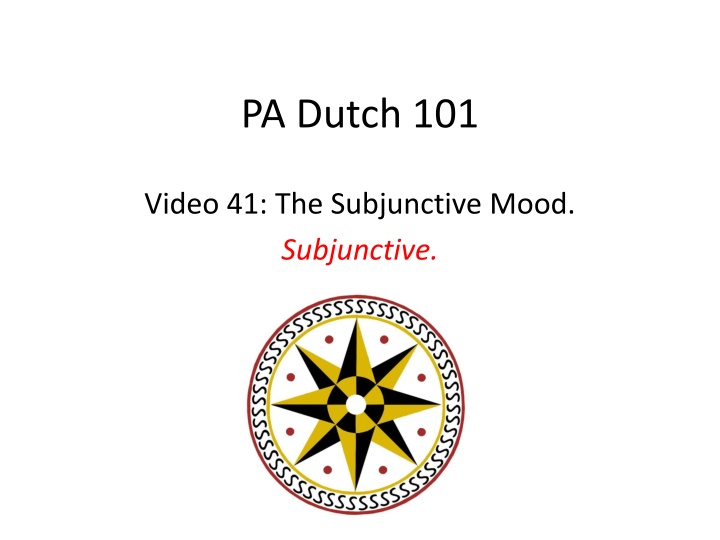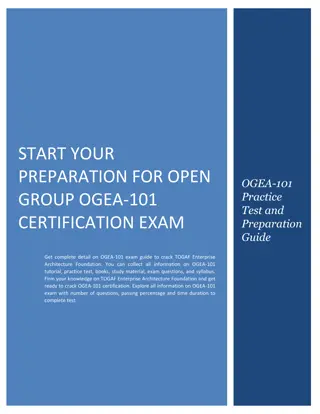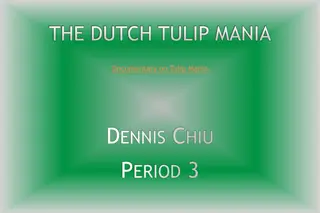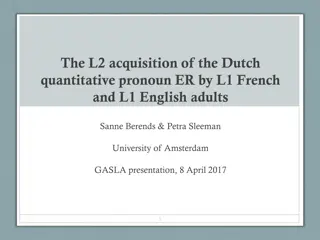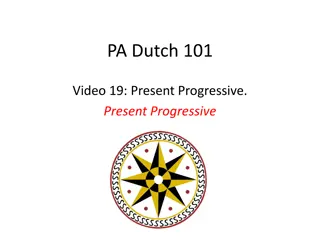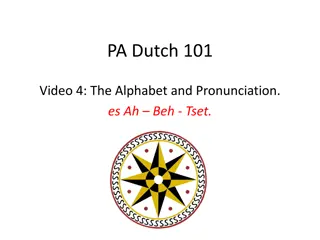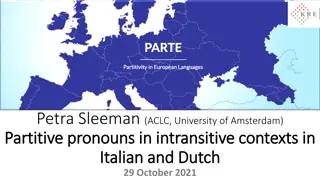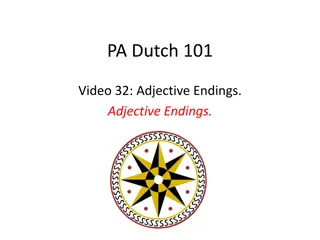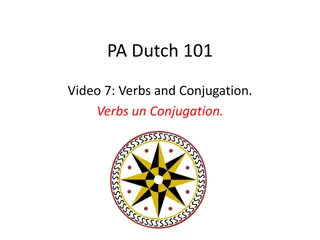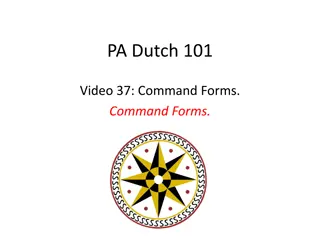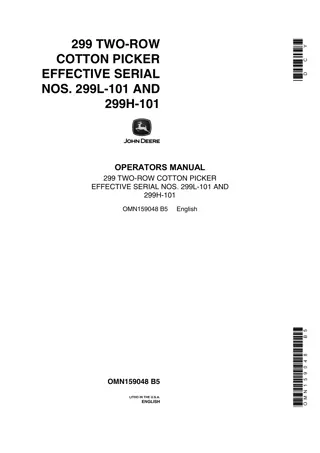PA Dutch 101
Subjunctive mood in PA Dutch is used to express unreal conditions and hypothetical situations. Learn how to form subjunctive verbs, explore examples, and understand special subjunctive verbs. Discover the rules for the verb "Sei" in the subjunctive mood and how to construct If-then clauses in PA Dutch.
Download Presentation

Please find below an Image/Link to download the presentation.
The content on the website is provided AS IS for your information and personal use only. It may not be sold, licensed, or shared on other websites without obtaining consent from the author.If you encounter any issues during the download, it is possible that the publisher has removed the file from their server.
You are allowed to download the files provided on this website for personal or commercial use, subject to the condition that they are used lawfully. All files are the property of their respective owners.
The content on the website is provided AS IS for your information and personal use only. It may not be sold, licensed, or shared on other websites without obtaining consent from the author.
E N D
Presentation Transcript
PA Dutch 101 Video 41: The Subjunctive Mood. Subjunctive.
Subjunctive Mood The Subjunctive is used to express unreal conditions things which might be true under other circumstances, but that are not true now. Wann ich meh Geld hett, daet ich en nei-i Maschien kaafe. If I had more money, I would buy a new car.
Subjunctive Mood The Subjunctive of most verbs is formed by combining daet with an infinitive; this infinitive comes at the end of the clause. ich du er/sie/es daet daetscht daet mir dihr sie daete daet daete
Subjunctive Mood A few example sentences: Ich daet sell mache, wann ich meh Zeit hett. I would do that, if I had more time. Daetscht du sell esse? Would you eat that?
Special Subjunctive Verbs A few verbs, however, have a single-form subjunctive that uses the following endings: ich du er/sie/es -t -tscht -t mir dihr sie -te -t -te
Special Subjunctive Verbs Here is a list of verbs that have single-form subjunctive: brauche breicht (would need) daerfe daerft (would be allowed) duh daet (would do) geh gengt (would go) gewwe geebt (would give) hawwe hett (would have)
Special Subjunctive Verbs kenne kennt (would be able to) meege meecht (would like) misse misst (would have to) solle sett (should) wisse wisst (would know) wolle wett (would want)
Sei As usual, SEI has its own rules for Subjunctive. It conjugates thus: ich du er/sie/es waer waerscht waer mir dihr sie waere waert waere
If...then Clauses Many Subjunctive Sentences use If...then clauses: If I would have more time, then I would travel. To do this in PD, use WANN and the following equation: WANN Subject Other Stuff VERB/DAET, DAET/VERB Subject Other Stuff VERB. Wann ich meh Zeit hett, daet ich reese.
Iewing - Practice If Steve would drink coffee, then he would not sleep much. Wann der Steve Kaffi drinke daet, daet er net viel schlofe. If he would want it, he would have it. Wann er es wett, hett er es. If Dave would bring the game, we would be happy. Wann der Dave es Schpiel bringe daet, waere mir froh!
Bis die naegschde Video, Macht s gut un schwetzt Deitsch! E-Poscht schreiwe: busterpa@yahoo.com
